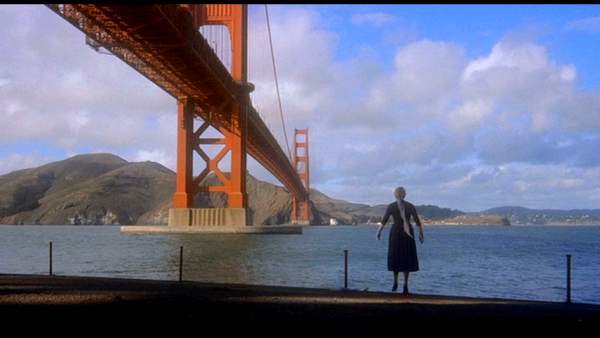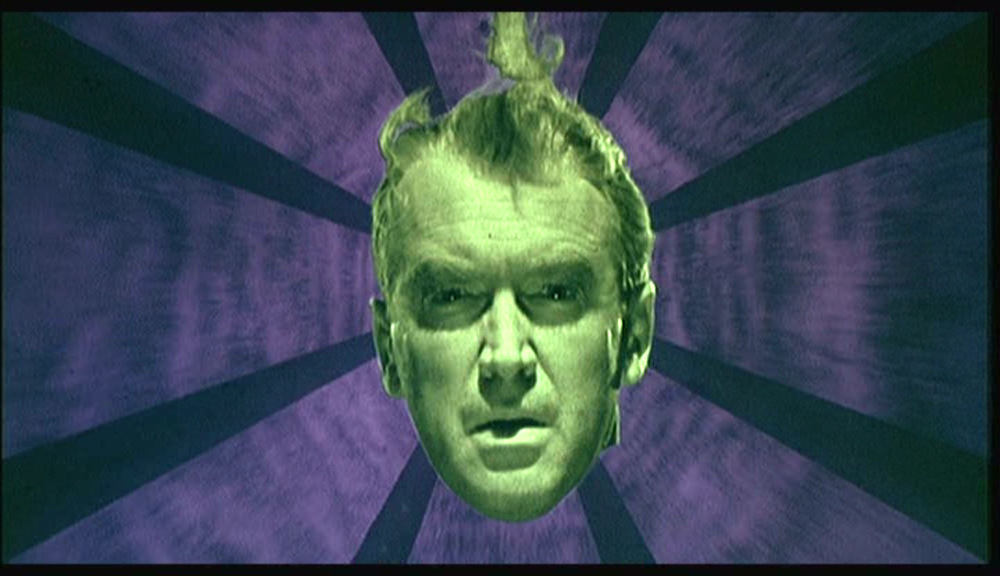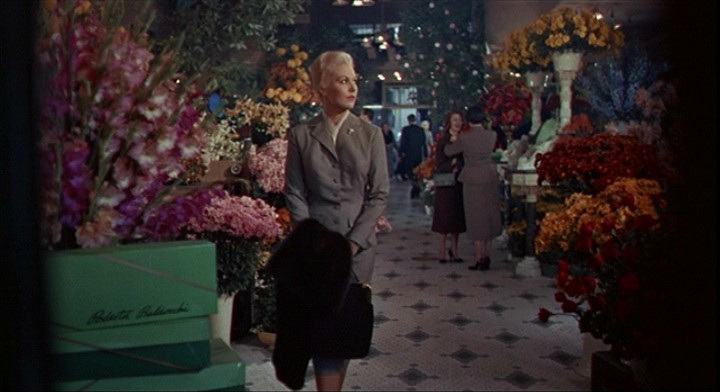The Film: Vertigo (1958)
The Principles: Alfred Hitchcock (Director). Alec Coppel, Samuel A. Taylor, Alma Reville (Screenwriters). James Stewart, Kim Novak, Barbara Bel Geddes, Tom Helmore, Henry Jones, Ellen Corby, Konstantin Shayne, Raymond Bailey, Lee Patrick, Margaret Brayton, Fred Graham, etc.
The Premise: A former detective is drawn into a web of obsession, lies, and murder when he is asked to investigate his friend’s wife.
Is It Good?: No, it isn’t good. It’s an all-timer. Alfred Hitchcock was, without a shred of doubt, one of the finest directors that the medium will ever see and Vertigo is his masterpiece. Shockingly enough, the film was panned by critics and audiences alike and barely broke even during its initial theatrical run. This made it one of the bigger disappointments in Hitchcock’s career and its cold reception left him bitter for years. While some circles praised it in the years following its release, Vertigo never truly received the love it so rightly deserved until the early-’80s. Unfortunately for Hitchcock, he passed away a few years before the film’s reappraisal.
Vertigo is quintessential Hitchcock: the fantastic genius of Saul Bass, wonderful performances, nerve-wracking suspense, breathtaking sequences, groundbreaking visual effects, a haunting Bernard Herrmann score, etc. It’s all here. As Hitch would say, it is “pure cinema”. I could go on and on about how the film is deeply autobiographical of Alfred Hitchcock on a psychological level; specifically his obsession with murder, hypnotic visuals, and a certain type of female. Any other week I would do just that. Instead, as a tribute to the man we are eulogizing this week in our peculiar little way, I will let Roger Ebert’s own passion for the film take over. Besides, he was better at it than I am! Roger and I may not have always seen eye to eye, but there was no denying his intense love of film and film history. Below is a segment from his wonderful review on one of his all-time favorite films. Please take the time to read his analysis in its entirety once you finish this piece and hopefully seek out the film if you haven’t already…
“Did he train you? Did he rehearse you? Did he tell you what to do and what to say?”
This cry from a wounded heart comes at the end of Alfred Hitchcock‘s “Vertigo,” and by the time it comes we are completely in sympathy. A man has fallen in love with a woman who does not exist, and now he cries out harshly against the real woman who impersonated her. But there is so much more to it than that. The real woman has fallen in love with him. In tricking him, she tricked herself. And the man, by preferring his dream to the woman standing before him, has lost both.
Then there is another level, beneath all of the others. Alfred Hitchcock was known as the most controlling of directors, particularly when it came to women. The female characters in his films reflected the same qualities over and over again: They were blond. They were icy and remote. They were imprisoned in costumes that subtly combined fashion with fetishism. They mesmerized the men, who often had physical or psychological handicaps. Sooner or later, every Hitchcock woman was humiliated.
“Vertigo” (1958), which is one of the two or three best films Hitchcock ever made, is the most confessional, dealing directly with the themes that controlled his art. It is *about* how Hitchcock used, feared and tried to control women. He is represented by Scottie (James Stewart), a man with physical and mental weaknesses (back problems, fear of heights), who falls obsessively in love with the image of a woman–and not any woman, but the quintessential Hitchcock woman. When he cannot have her, he finds another woman and tries to mold her, dress her, train her, change her makeup and her hair, until she looks like the woman he desires. He cares nothing about the clay he is shaping; he will gladly sacrifice her on the altar of his dreams.
Is It Worth A Look?: Did I stutter? If you haven’t seen this masterwork yet, you owe it to yourself to do as ASAP. Will you love it as much as most? Hard to say. No matter how close to perfection a film is, there will always be a group of cinephiles that it doesn’t click with. This is nothing to be upset or ashamed about. It’s just the way life is. Different strokes for different folks. Here’s the kicker though: You will never know how you feel about ANY film (be it a classic or not) until you sit down and experience it for yourself. So yes, Vertigo is absolutely worth a look. Any film fan worth their salt needs to sit down with this one at some point. Even if you ultimately dislike the film from a performance or narrative standpoint, there is no denying the technical achievements and cinematic mastery on display.
Random Anecdotes: Alfred Hitchcock’s favorite among his own work.
Vera Miles was Hitch’s original choice for the role of Madeleine, but after various production delays and then eventually a pregnancy, Miles was forced to drop out. She had previously worked with Hitchcock on The Wrong Man (1956) and would go on to work with him again in Psycho (1960).
Kim Novak was under contract with Columbia Pictures and had conflicting commitments. In exchange for allowing Novak to make this film, Columbia was promised that Jimmy Stewart would star alongside her in their production of Bell, Book and Candle. Ironically the production was delayed enough while working out Novak’s contract issues that Miles could have starred anyway, but Hitchcock stuck with Kim.
The novel that the film is based on, D’Entre les Morts (From Among The Dead), was written for Hitchcock by the authors after they discovered that he had unsuccessfully attempted to buy the rights to their earlier book, Celle qui n’etait plus (She Who Was No More). Hitch was beaten to the punch by Henri-Georges Clouzot, who turned the latter novel into the classic film Diabolique.
Hitchcock was notoriously upset with the film’s failure. He blamed the majority of its critical and commercial disappointment on star Jimmy Stewart, whom he claimed was too old for the part. Despite Stewart’s interest in the lead for North By Northwest, Hitch cast Cary Grant instead, despite the latter actually being older than Stewart. Jimmy and Alfred never worked together again, despite their previous successful collaborative relationship. Hitchcock later threw Kim Novak under the bus as being miscast in her role as well.
Cinematic Soulmates: Body Double, Diabolique, High Anxiety, The Man Who Knew Too Much, Obsession, North By Northwest, Rear Window, Rope.

Vertigo (1958) 128 min
A retired San Francisco detective suffering from acrophobia investigates the strange activities of an old friend's much-younger wife, all the while becoming dangerously obsessed with her.
- Released
- 07.21.1958 (USA)
- Directors
- Alfred Hitchcock
- Writers
- Alec Coppel
- Samuel A. Taylor
- Actors
- James Stewart
- Kim Novak
- Barbara Bel Geddes
- Tom Helmore
- Henry Jones
- Genres
- Mystery
- Romance
- Thriller
- Watch or buy now




